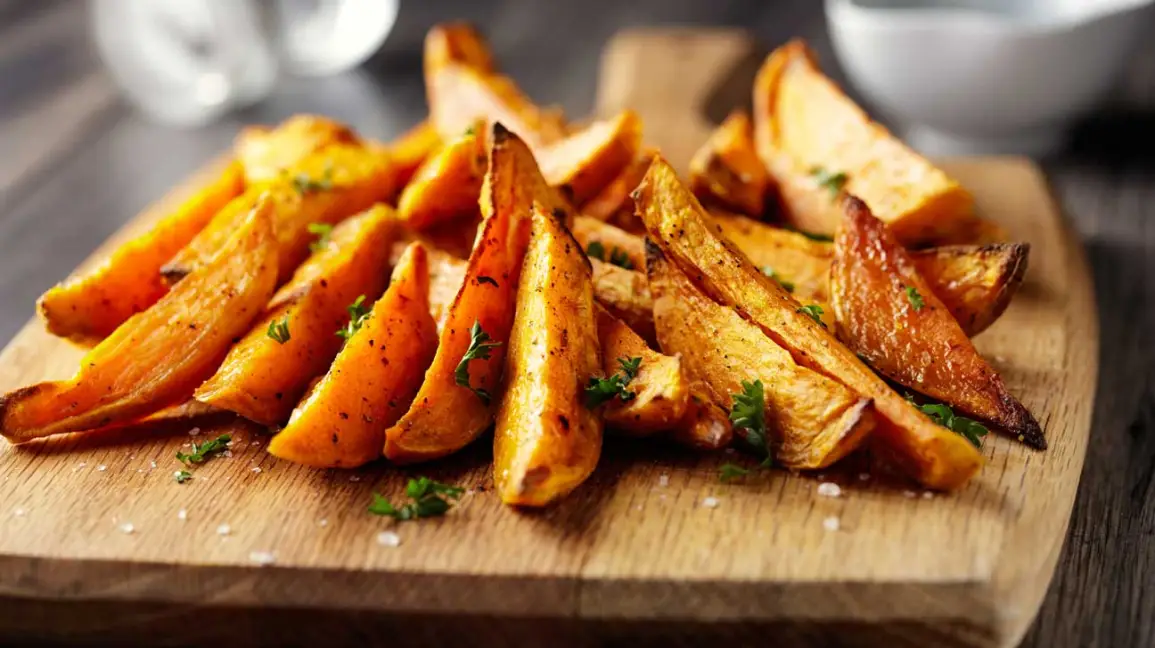How Much Carbohydrate Is In A Sweet Potato And Does Cooking Change It?
The versatility of potatoes makes them a favorite food around the globe. You can bake, mash, fry, roast, and boil potatoes, which makes them a part of many cuisines. Knowing the nutritional value is essential for those watching their carbohydrate content. You’re not the first to wonder how many carbs are in a Potato. Because potatoes have a high carbohydrate level, many wonder if they are healthy. Moreover, how potatoes are cooked affects their carb content. This post will examine how many carbs in a potato contains and how different cooking methods can impact that number.
Comprehending Carbs In Potatoes
As starchy vegetables, they contain a lot of carbohydrates, especially the russet varieties. The carbohydrate amount can vary slightly based on the type and size of the potato. A medium-sized one (roughly 150 grams, or 5.2 ounces) typically contains about thirty grams of carbohydrates. This carbohydrate comes primarily from starch.
Along with starch, potatoes contain a tiny amount of dietary fiber (3 grams in a medium-sized potato). Fiber is a nondigestible carbohydrate that helps to regulate digestion. Sugars make up the rest of the carbohydrates. Potatoes have a lower sugar level than other carbohydrate-containing foods, like fruits.
When considering how many carbs are in a potato, you should remember that the carb content may vary depending on which potato is used. For example,
- Russet potato has the highest starch contents and is one of the most popular varieties.
- Although these red potatoes may have fewer carbohydrates, they are still preferred because of their waxy texture in dishes like potato tartar.
- A popular alternative is sweet potatoes, which have fewer carbohydrates than russets and higher levels of vitamins.
How Cooking Affects The Carbohydrate Content Of Potatoes?
Potatoes contain many carbohydrates. However, how you prepare and cook them can impact how your body processes these carbs. Cooking methods like baking, frying, and boiling can affect the glycemic Index (GI), indicating how fast the carbohydrates raise blood sugar. We’ll explore how different cooking methods affect the carb content of potatoes and their nutritional profile.
- Boiling Potatoes
Most commonly, potatoes are boiled to make mashed or smashed potatoes. When you boil potatoes, they absorb water, reducing their carbohydrate concentration. However, the carbohydrate level is still similar to raw potatoes, as starch doesn’t change during boiling.
How does it affect carbs? The potatoes’ boiling process can alter their texture and how the human body processes the starch. Boiling potatoes have a lower glycemic index than fried potatoes. It is recommended that those with diabetes boil their potatoes.
Tip: Let the potatoes cool down if you want to reduce their glycemic load. After cooking, allowing them to cool increases the amount of resistant starch. This type of fiber feeds healthy gut bacteria with minimal blood sugar impact.
- Baking Potatoes
Baked potatoes have a crispy outer skin and a soft, fluffy interior. Baking doesn’t affect the potato’s carbohydrate count but can change how the starch and sugar are absorbed.
How it affects carbs: No, it doesn’t. The glycemic index is higher for baked potatoes than for boiled potatoes. This means baked potatoes may cause blood sugar to rise faster. Baked potatoes may not be a good choice if you are trying hard to control blood sugar.
Tip: Serve baked potatoes with healthy toppings such as Greek Yogurt, vegetables, and lean protein. This will help balance the carbohydrates’ impact on blood glucose.
Conclusion
Although potatoes are nutritious and versatile, their carbohydrate contents can concern those watching their carb intake. This is especially true for diabetics or those on low-carb diets. A medium-sized sweet potato contains about 30g of carbs. Starch is the main component. However, how you cook your potatoes will affect how well they are processed. In terms of glycemic control, boiling potatoes might be a good option.
What is the carb count in potatoes depends largely on how and which type it is. However, when cooked properly, potatoes make a great addition to a healthy diet. If you choose healthier cooking methods, such as roasting or boiling, and combine potatoes with protein and fiber, you can still enjoy your favorite vegetable without worrying about carbs.
Keep an eye for more latest news & updates on Newsletter Tribune!




